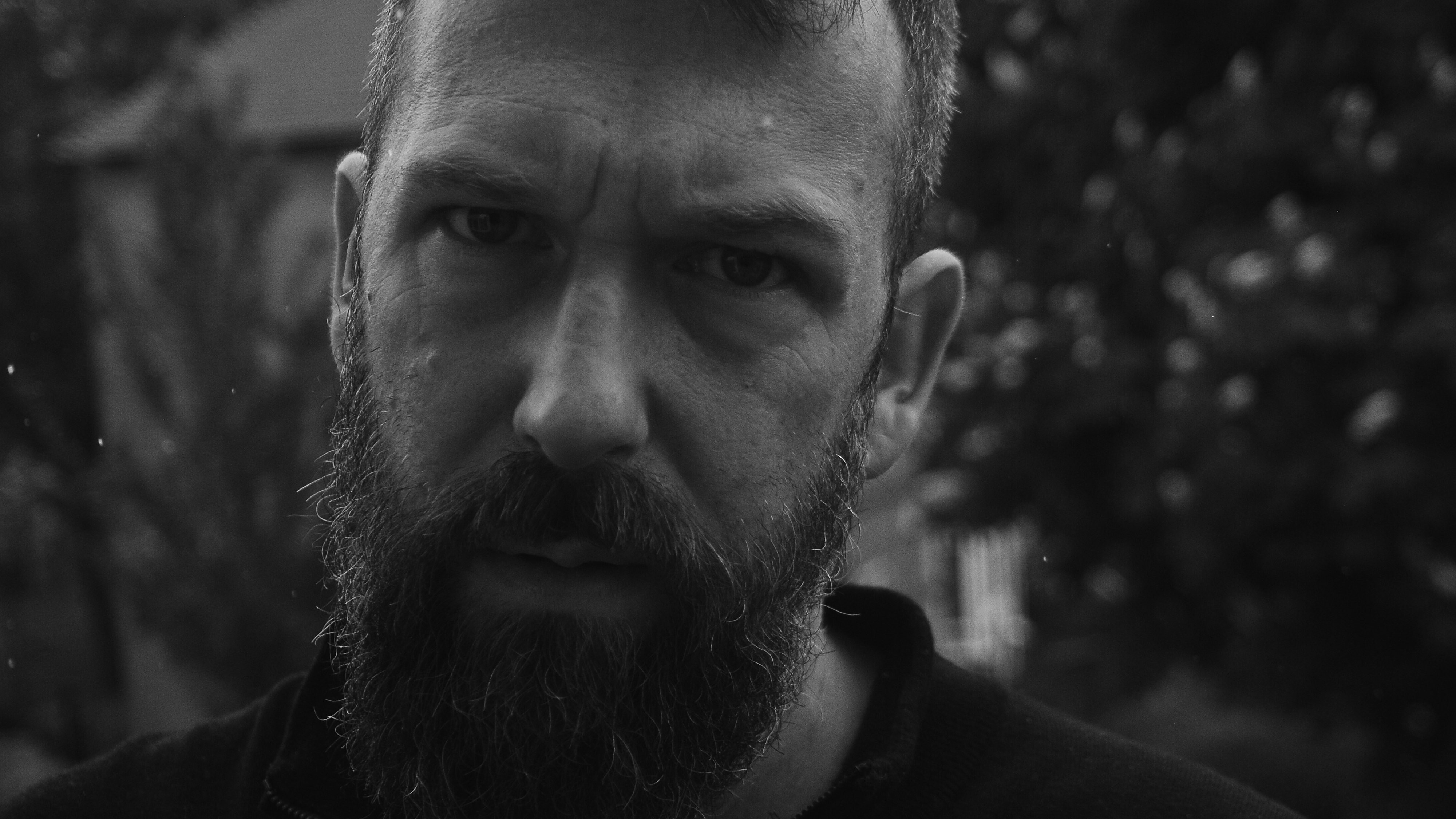
Since debuting in 2022 with I Was Born By The Sea, Richie Culver has shaped a bleak and poetic vision of ambient music, where mangled samples and distorted textures paint a monochrome backdrop for his grimly evocative spoken-word.
While last year’s Scream If You Don’t Exist featured guest turns from Billy Woods and Moor Mother, Culver’s latest LP is a self-produced and self-released affair that distils his distinctive style to an even more potent concentration. A multidisciplinary artist, Richie Culver works in painting, photography and performance in addition to his music-making, while exploring more abrasive and industrial sounds via the alias Quiet Husband.
In recording his most recent project, Hostile Environments, Culver sent loops and field recordings through his CDJs and mixer into a Teenage Engineering OP-1 and BOSS looper, degrading and corrupting the sounds beyond recognition to create shadowy, looming soundscapes to set against his haunting processed vocals.
We caught up with Richie Culver to find out more about the making of Hostile Environments.
When did you start making music, and how did you first get started?
“I was probably 15 or 16 in Hull, getting bits and bobs of equipment after my first set of decks - I was using those as musical equipment, or at least trying to. They were belt-driven decks, not Technics, so it wasn’t great. Regarding production bits, it was all lending and borrowing and people selling when they were broke, so nothing really stuck. There were things like the Yamaha PSS-170, a friend had a Roland JP-8000 and an Akai MPC, so that’s where I started to familiarise myself. We were trying to understand and find records we had heard that weekend, which was difficult in the mid ‘90s.
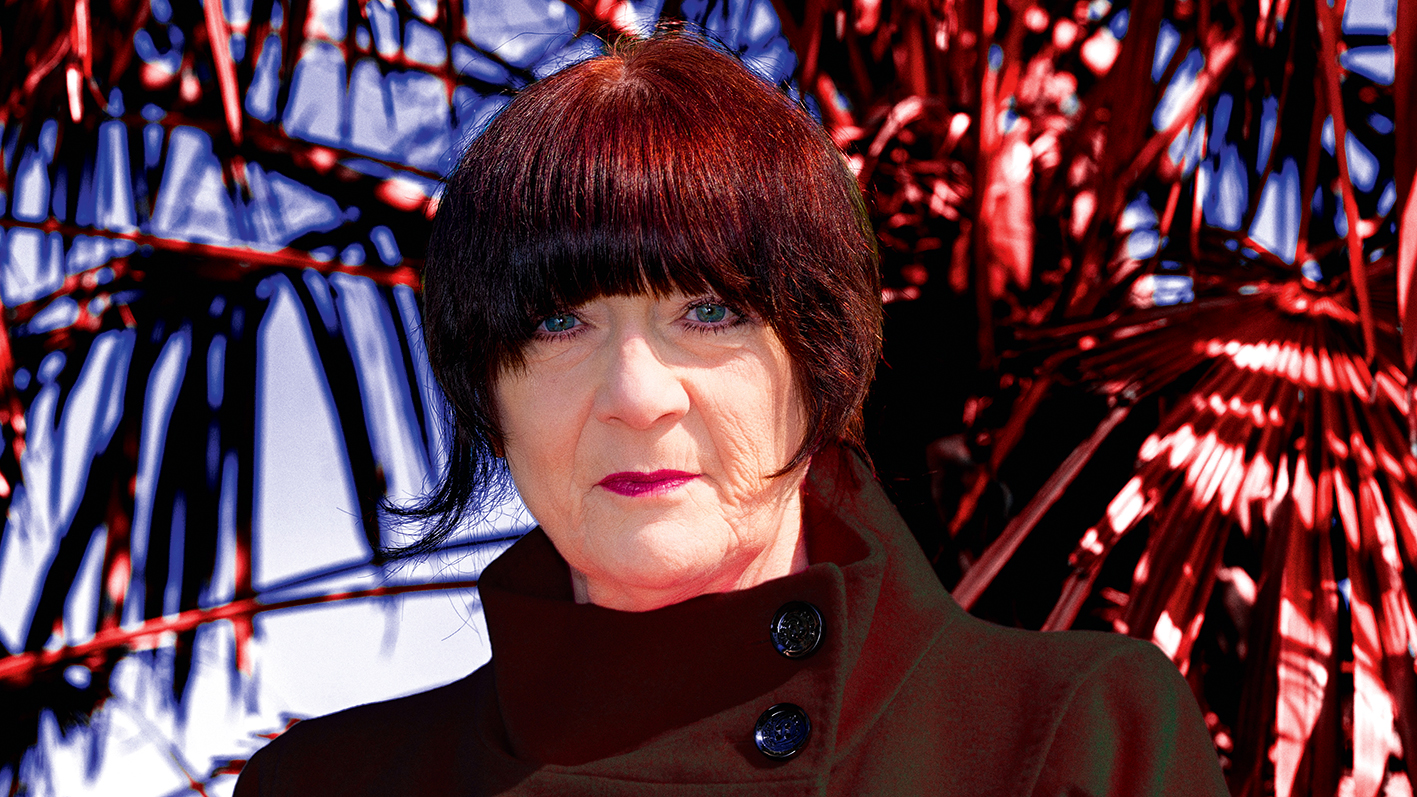
Cosey Fanni Tutti: "We’re a long way from resolving the issues faced by female electronic musicians"
“Pork Recordings was huge for me. That’s when my life changed and I grew up musically into the same headspace I have today. Fila Brazillia kinda took my breath away and I knew what I wanted to do, or at least I knew the blueprint I wanted to follow - also Throbbing Gristle, who were also formed in Hull. I came back to them in my mid ‘20s, but I was exposed to them in my teens. I think because Fila Brazillia and Pork Recordings were loosely connected to house music, that was an easier access point as I was raving every weekend.”
Tell us about your studio/set-up.
“My studio has views over London, which is really amazing - every time I look out I fall back in love with London, and it’s a real positive regarding creativity to be able to access these emotions I had when I first visited London as a teenager.
“I’ve been there a year now, but before this I was finishing my Masters at the Royal College of Art and my music set-up was at home or on my computer. It’s mostly hardware in my studio.
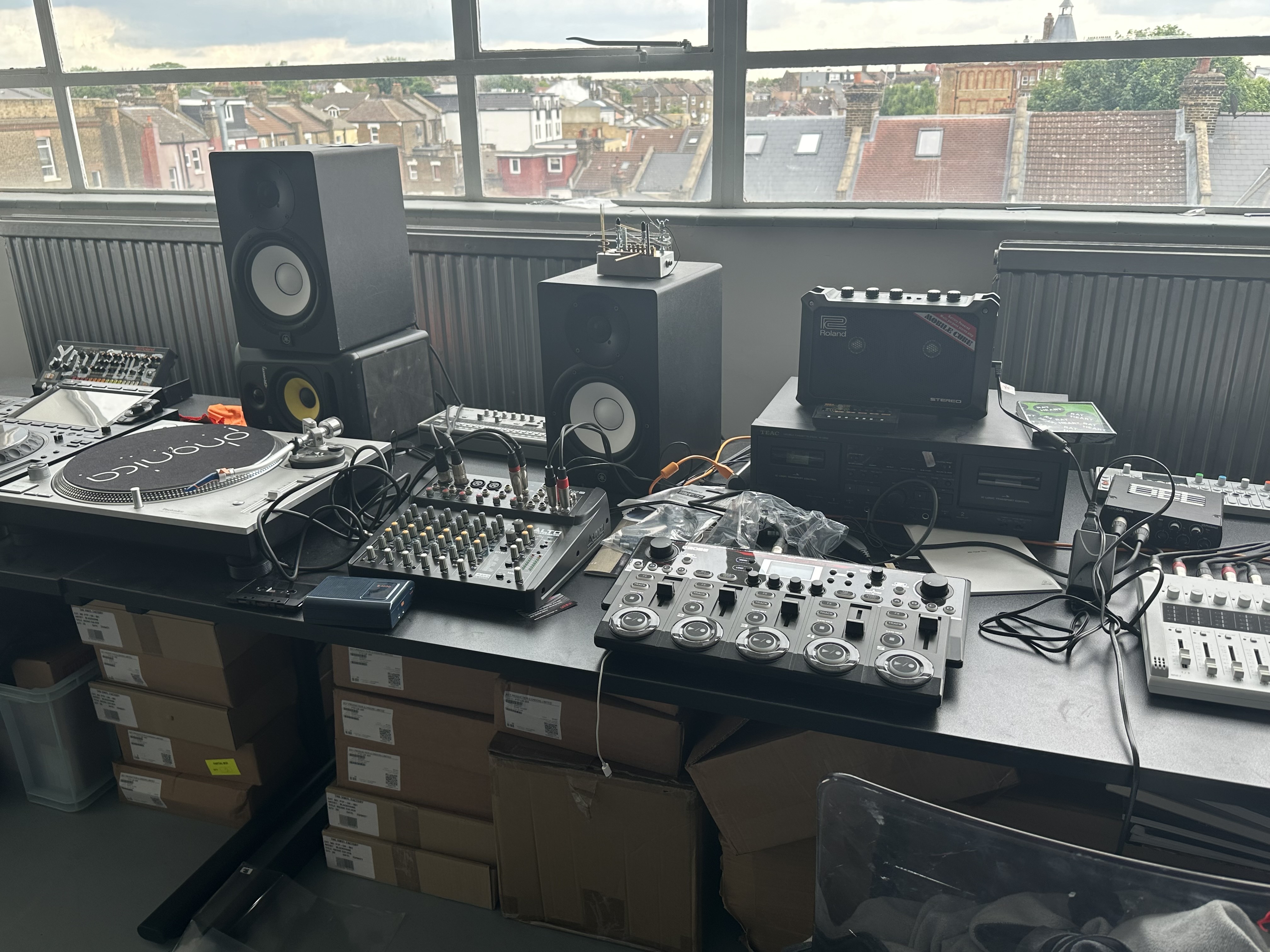
What DAW (or DAWs) do you use, and why did you choose it?
“Regarding DAWs, I’ve moved around over the years from Fruity Loops to Pro Tools to Ableton there’s never been one I prefer or stuck with. I like the sketch-like quality and improvised landscape that Ableton offers.
“It doesn’t always feel natural though to me staring at a screen, it’s something I’m always fighting against. I think that’s where my early influences come in, such as Throbbing Gristle and their version of DIY which has stuck with me to this day.
What one piece of gear in your studio could you not do without, and why?
“My Teenage Engineering OP-1 is definitely up there. I got it when it first came out. I remember thinking that this is all I need now - I’m constantly aiming to downsize everything and felt I’d found the answer.
“I still don’t think I’m using it to its full capability but it’s been a trusty piece for the last few years regarding sketches and taking it away with me.”
What's the latest addition to your studio?
“A Trauma Tone contact microphone. It’s made by Ryan Bloomer from Delta Kane, the Middlesbrough-based noise/experimental label - Industrial Coast did a noise remix album of my first record I Was Born By The Sea, and Delta Kane did a mix. I later saw Ryan also made equipment and saw some videos of his contact mics - I bought two, and my mind was blown.
These things really brought me back to the DIY aesthetics, from attaching them to cymbal stands, taking off the cymbal and attaching chains to putting the mic in a tin full of spiders
“These things really brought me back to the DIY aesthetics, from attaching them to cymbal stands, taking off the cymbal and attaching chains to putting the mic in a tin full of spiders. It’s definitely catering to the more underground environments but it’s come everywhere with me since I got it, and it’s great for live sets also.”
What dream bit of gear would you love to have in your studio?
“Probably an original LINN LM-1 Drum Computer, the ‘80s version. I think that would be me set for life. Not sure I’d leave the studio, to be honest. Aesthetically, it’s such an amazing design - a real object of beauty.”
What’s that device with the rubber bands and springs in your studio shots?
"It’s basically a small noise machine, great for live noise sets. Makes all kinds of evil and harsh noise textures, creating creaking landscapes and super dense sounds. Hours and hours of fun. I found it online a while ago, but unfortunately I can’t remember the name of who made it. There’s multiple ways to play it, from scraping it to plucking it and everything in between.”
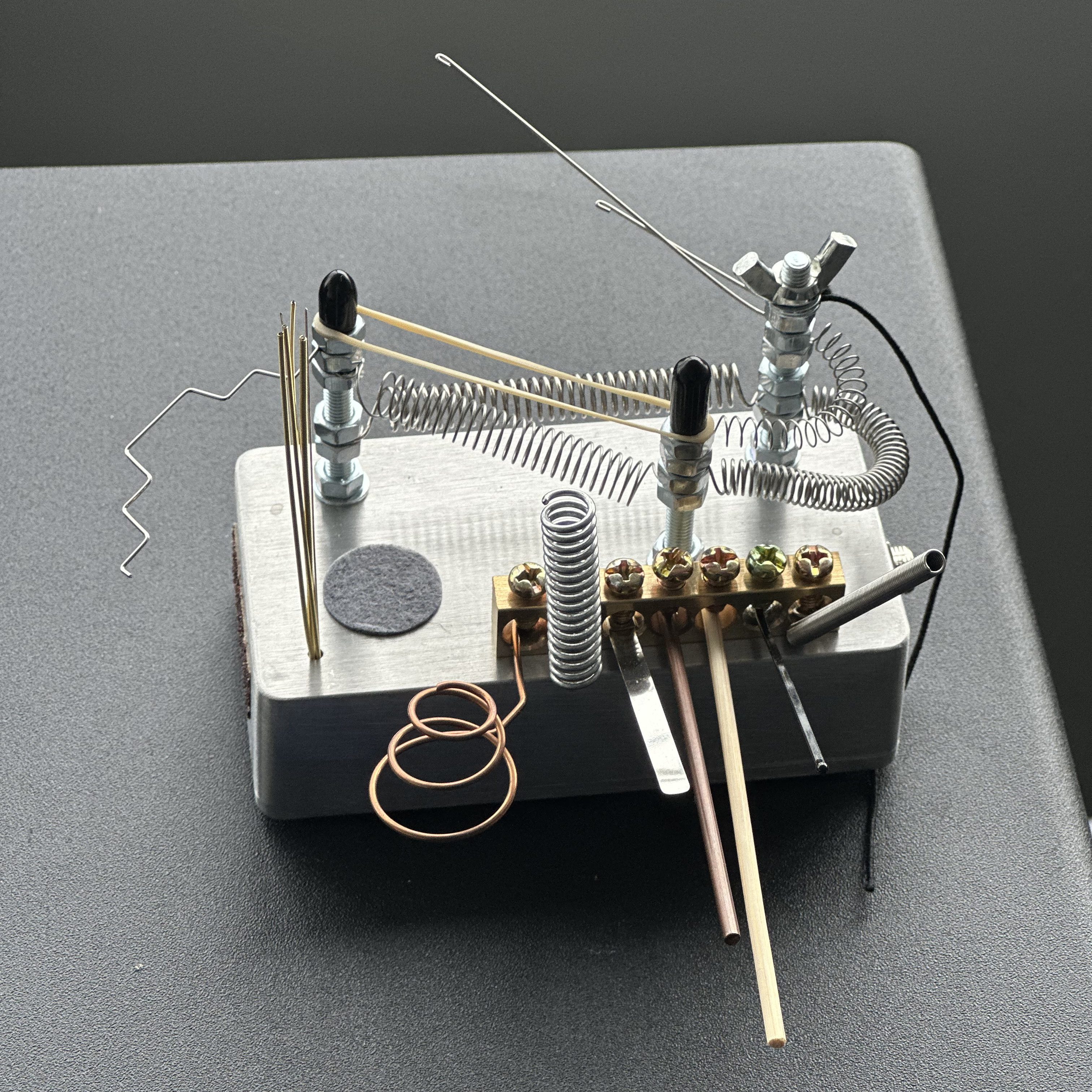
When approaching a new track or project, do you have a typical starting point?
“Yes. It’s usually when I’m not on my phone or connected to social media. Every weekend, Friday night to Monday morning, I give my phone to my partner so I can mentally reconnect to myself. I can think clearer and ideas naturally grow. Nothing grows other than self validation or negativity when I’m online.
“Usually ideas stem when I’m washing the dishes or doing something really normal on a weekend with my family. I then write it down somewhere and on Monday I’ll start putting vocals into my voice recorder and take it from there. Obviously this isn’t the case for everyone, but I’m mentally too sensitive to be able to come up with core ideas when I’m plugged into a world of other people’s opinions and ideas.
“I think there’s definitely a residue of all of this melting in my brain during times when I’m offline, which is a fairly interesting topic in itself.”
Tell us about how you approached the production on your new project. Did you experiment with any new techniques or methods?
“This record was relatively easy to construct. Most of it was made on my OP-1, Ableton and BOSS RC-505 loop station. I wanted to strip things back - not entirely but to some extent.
“Sonically, this is the simplest yet most effective record I’ve made, a juxtaposition to the lyrics which are about coming to terms with plan B, C or D in life. Tracy Chapman’s lyrics in Fast Car are ‘leave tonight or live and die this way’: this record is about living and dying that way.
“Marco Freivogel then mixed it, but went above and beyond, taking it into another stratosphere. It’s important that I mention him here because his mixing and mastering work is second to none. I nearly cried when he sent back the mixed version of the record.”
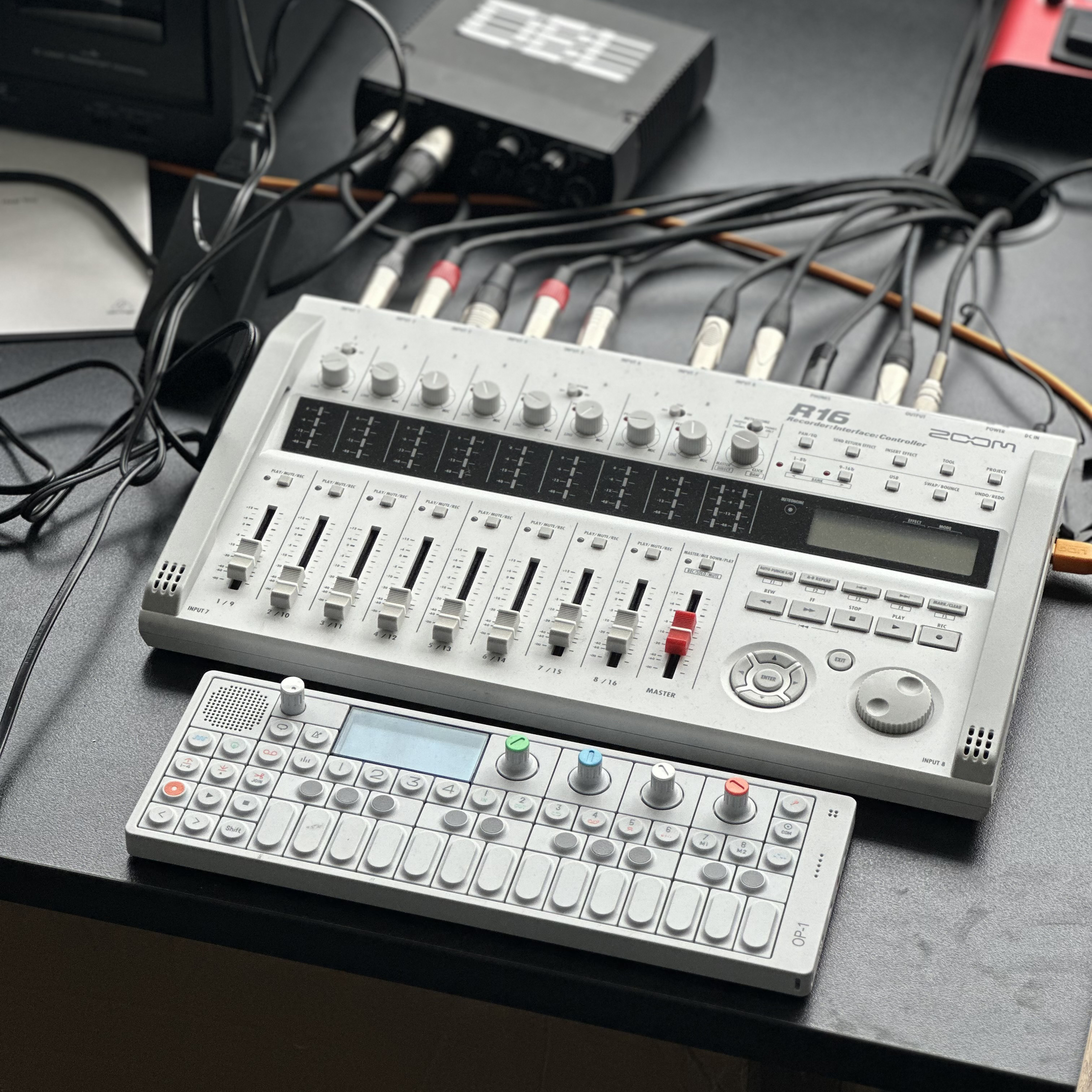
There is a diverse array of timbres and textures across Hostile Environments. Could you pick out one or two sounds and talk us through your sound design process?
“Much of the textures were a combination of loops, run through my CDJs and DJM mixer into my OP-1 and BOSS loop station. Originally I was going to sing parts on this record but eventually came to the conclusion that I’m not quite ready to do that yet. But the recordings I made of my singing were a good starting point to deconstruct.
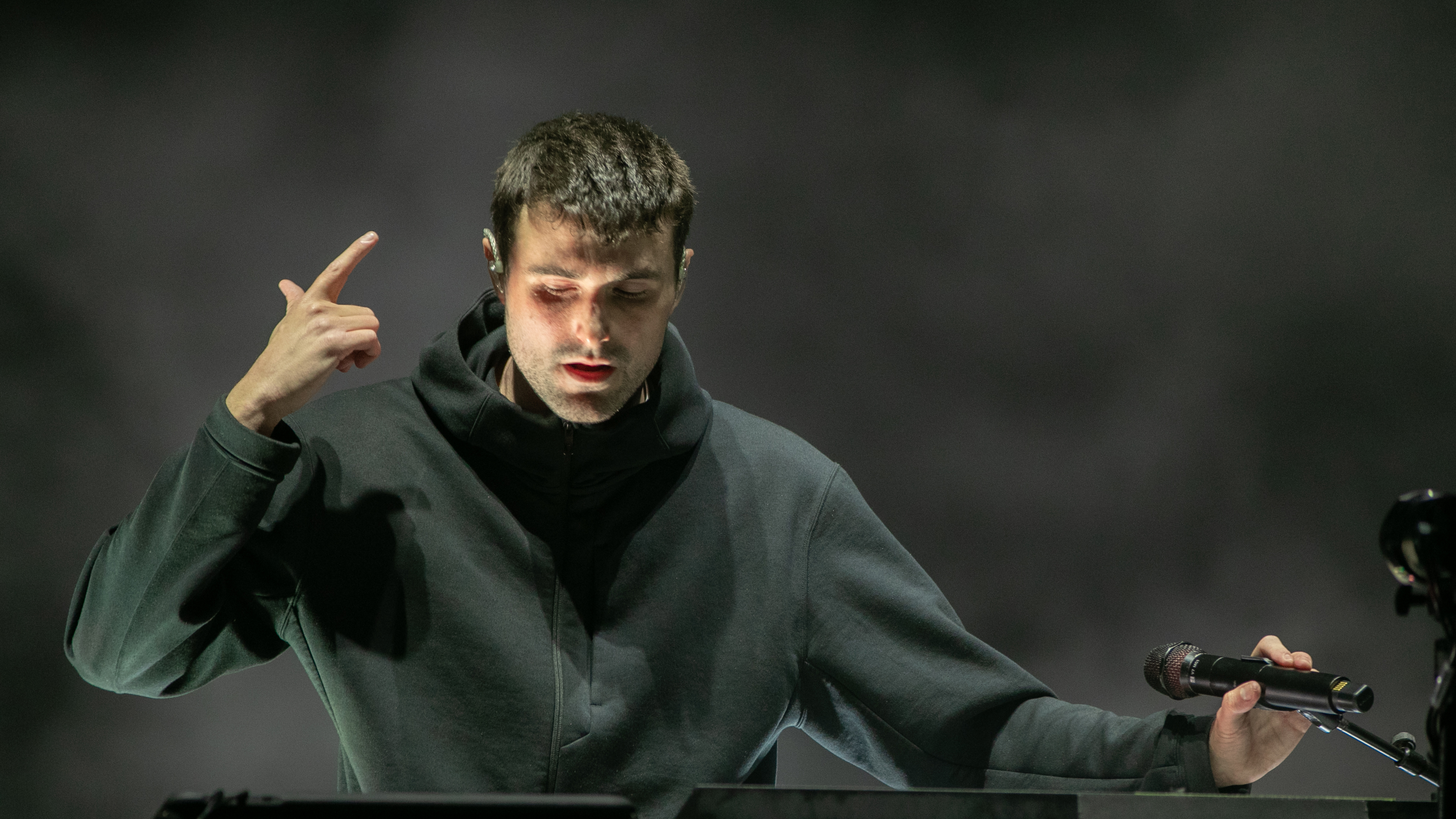
“So I worked through each song I sang, condensing and stamping on it until it was unrecognisable, and then began building it up from the rubble until it became almost spring/summer sounding - a haziness which I never intended. I guess it was like a painting process when you make a mistake, or what feels like a mistake, but that gesture leads you to another way of looking at it. Then it’s a case of adjusting my expectations and going with the mistakes, which feels unnatural but it’s been something I’ve been practising in all my mediums to the point where I want to make mistakes, because that’s where the gold is.”
We love the distorted drone on Changed My Style 4 U. How did you create that?
“This was made via my OP-1, DJM mixer and BOSS loop station. Using the echo on the mixer and looping multiple times to create a dreamlike echoing call. The textures underneath are field recordings I made on the U8 underground in Berlin. The U8 line is a space I always return to for creating in all my records. I basically lived down there for a while, so it holds a really intense space in me and it translates well in my musical output.”
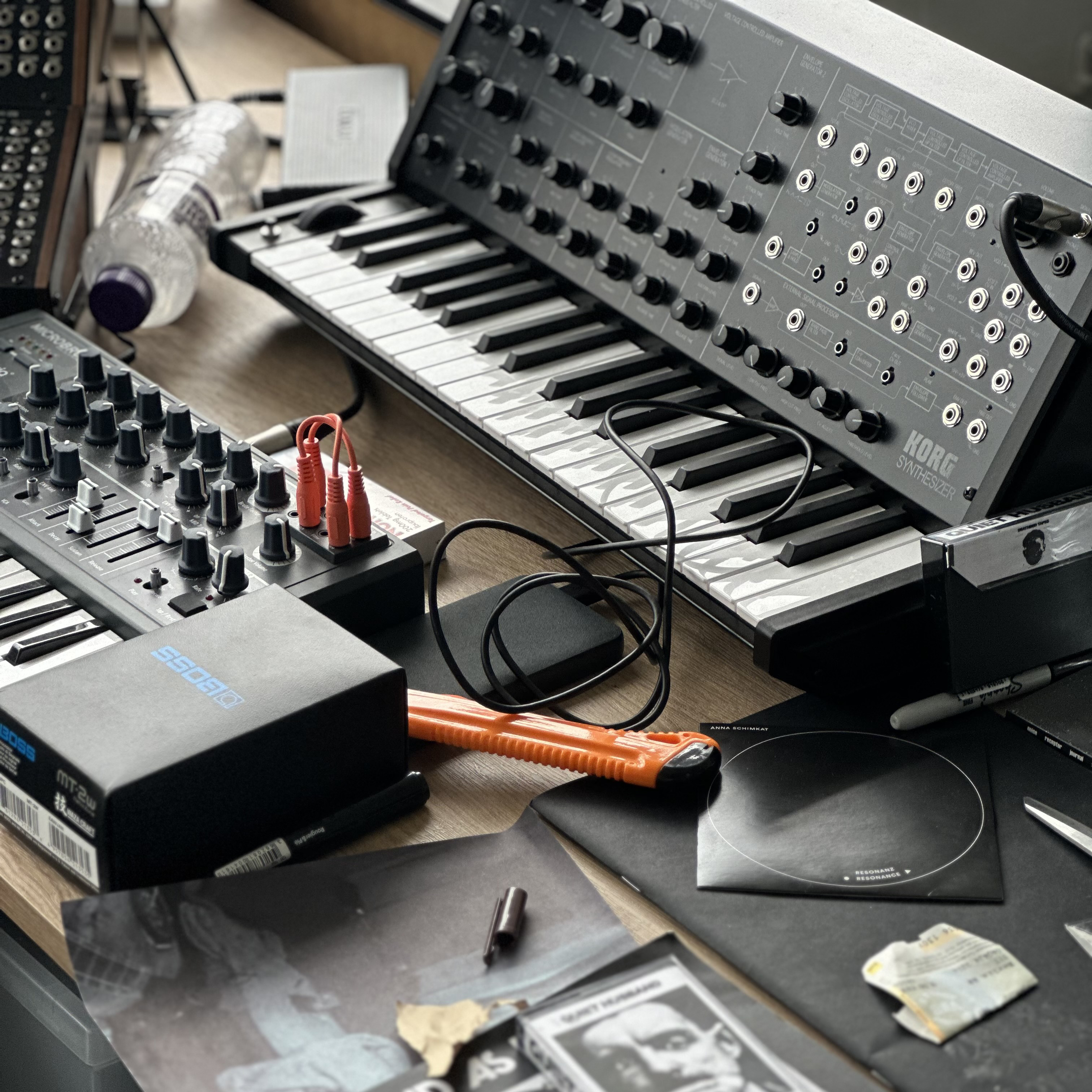
Tell us about one artist or track that’s inspired you the most as a producer and musician?
“There’s so many that I’m gonna have to mention a few. I mentioned Throbbing Gristle and Fila Brazillia already, but Climax Denial I’ve been listening to loads recently. Vomir also. Rainy Miller is a genius as is Blackhaine. Space Afrika. Billy Woods. Moor Mother.
“I’m lucky enough to have worked with all those guys and they all work in different mediums - I guess that’s what I like in an artist. Someone that can design the flyer to the event, promote it, play live at the event, DJ at the after party and take photos and design the merch. I remember someone once saying to me, if you can do all those things, you are the complete artist. That’s what I always aimed to do.”
What are you currently working on?
“I have a Quiet Husband LP coming out on Drowned By Locals this autumn, following on from the EP I brought out in Jan. It’s an industrial techno/noise record. My first plan for Quiet Husband was to have no digital footprint - tape or vinyl only - but I’m gonna release this one properly. I use the alias Quiet Husband for the more harsh underground work I make. I also DJ under that alias - I have gigs at TRESOR and The White Hotel coming up as Quiet Husband.”







